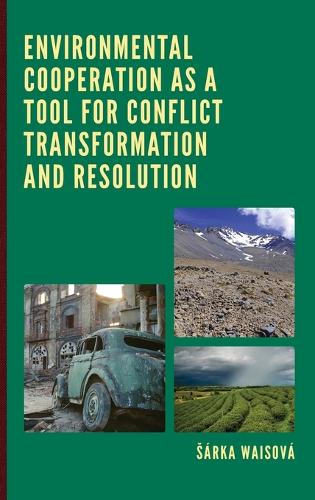
Environmental Cooperation as a Tool for Conflict Transformation and Resolution
(Hardback)
Publishing Details
Environmental Cooperation as a Tool for Conflict Transformation and Resolution
By (Author) rka Waisov
Contributions by Lenka Kudlcov
Contributions by Nikola Klmov
Bloomsbury Publishing PLC
Lexington Books
17th February 2017
United States
Classifications
Professional and Scholarly
Non Fiction
Political structure and processes
Pressure groups, protest movements and non-violent action
327
Physical Properties
Hardback
208
Width 159mm, Height 237mm, Spine 21mm
458g
Description
Environmentalists and advocates of environmental cooperation in conflict frequently discuss certain environmental cooperation project proposals such as the establishment of the Peace Park in the demilitarized zone on the North-South Korean border, the Indo-Pakistani Peace Park on the Siachen Glacier, the joint system of trans-boundary environmental protection between Thailand and Cambodia, and the joint management of Palestinian and Israeli water resources. These proposals, however, are by no means isolated. The idea that the development of environmental cooperation in conflict areas can create a bridge between conflict communities and help conflict transformation and resolution is almost two decades old. Declarations of cooperation between conflict communities and bringing the potential for peaceful relationships into conflict areas through joint environmental projects appear in the agendas of several international governmental and non-governmental organizations. However, our knowledge of the real workings of environmental cooperation in conflict zones does not correspond with the popularity of these thoughts and actions. Although environmental cooperation has been initiated in many conflict areas, the differences in individual cases are so large that, so far, there is neither accurate data nor any idea of the workings of environmental cooperation as a tool for conflict transformation. This book addresses some of these issues and offers several new findings. Specifically, it examines the emergence of environmental cooperation and its function in political conflicts. It concludes that not all environmental cooperation is real cooperation and not all real cooperation is favorable. The scope, form, and content of cooperation are important to the peacebuilding potential of environmental cooperation, and there are multiple intervening factors such as motivation of actors, their value preferences, and duration of the support of external actors.
Author Bio
rka Waisov is associate professor at the Department of Politics and International Relations at the Faculty of Philosophy and Arts, University of West Bohemia.
